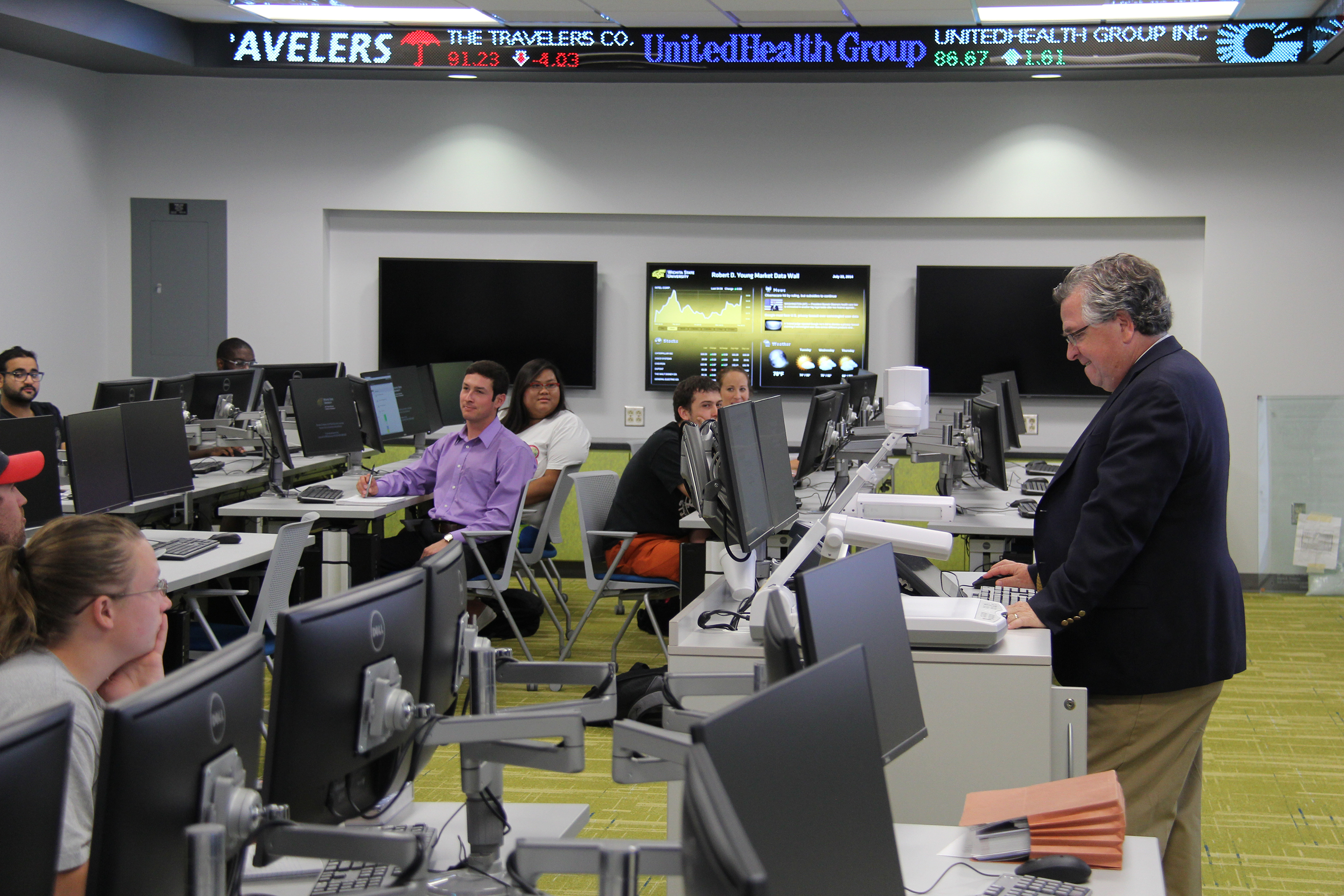One of the biggest goals of Wichita State University's new strategic plan is to guarantee an applied learning experience for every student. That goal is becoming a reality for finance majors with the introduction of WSU's new Koch Global Trading Center, part of the W. Frank Barton School of Business.
The center, which opened July in 800 square feet on the main floor of Clinton Hall, features 30 work stations equipped with PCs supplying real-time comprehensive financial data.
Each student’s work station has a computer with two monitors. The room has five different screens on the walls showing live market data and television feeds. It also has a 60-foot-long digital stock ticker that runs along the ceiling showing individual stock prices. Another 30-foot-long circular ticker now graces the lobby of Clinton Hall.
The real heart of the center, though, are the databases and simulation programs that the students can access for live market data and market research, says director Timothy Craft. Students also have access to specialized commodity and energy data from ZE PowerGroup and Platts McGrawHill Financial.
These are the actual materials and databases, Craft says, that professionals use in the workforce.
"When students graduate, they will already have experience using several databases that are used in the real world by employers," he says. "Having experienced classes in the trading center will help differentiate our students from graduates of the other universities."
The increased knowledge of graduates will also help the local industry.
"The trading center also increases the knowledge of commodity and energy trading," Craft says. "The energy business has expanded quickly in the last few years, and that has had a big impact on the Kansas economy."
Real data in real time
Craft says one of the main benefits of the new center – as opposed to a traditional classroom where the teacher just talks about how the market works – is that the students can see in real time how the market works. Students can make their own investment decisions with the simulation program, and if there’s a question, the professor and students can find out the latest information together in class.
The Barton School is updating existing finance classes to incorporate the capabilities of the trading center and will also create new courses in the area of commodity trading.
“Until now, we have not taught any courses on this topic,” Craft says. “However, now with the trading center, we will have access to real commodity and energy data that will make classes like that possible.”
Craft says traders from Koch Industries Inc. and other local businesses are helping to develop the new classes and that several new internships may be created to capitalize on the capability of the trading center.
Another hope now is that with the trading center and stock tickers so prominent in the Clinton Hall lobby, new attention will be brought to the Barton School and increase student recruitment. The expanded and exciting new coursework will also attract more students, Craft says.
And it’s not just for finance majors. Students from other disciplines can learn more now about the impact trading activities have on all aspects of business.
“This will allow students to have a more comprehensive understanding of how markets work, the support functions necessary to properly trade, and how trading concepts apply to many areas of business,” he says.


 Wichita State University
Wichita State University